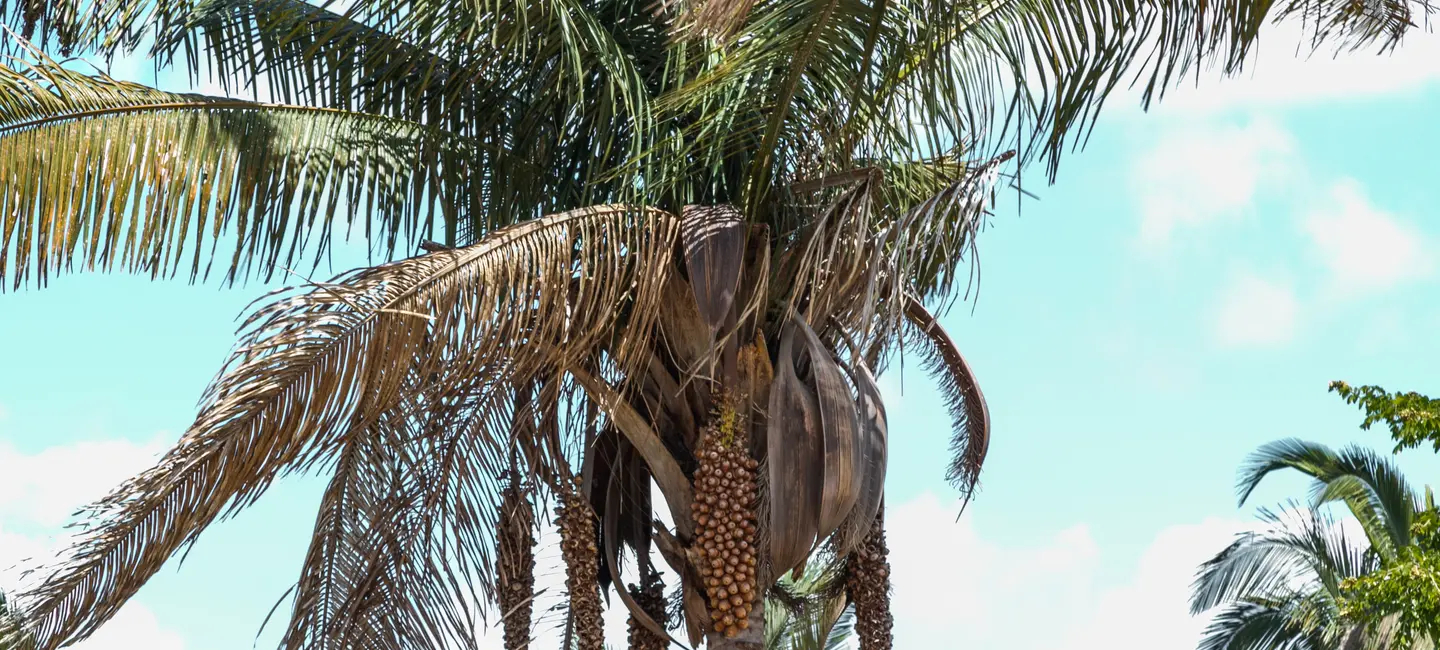
Babassu is a type of palm tree that grows in Brazil. People use parts of the fruit and the oil found in the kernels to make medicine.
People use babassu for conditions such as cancer, infections of the kidney, bladder, or urethra (urinary tract infections or UTIs), wounds, and many others, but there is no good scientific evidence to support these uses.
Is It Effective?
NatMed Pro rates effectiveness based on scientific evidence according to the following scale: Effective, Likely Effective, Possibly Effective, Possibly Ineffective, Likely Ineffective, Ineffective, and Insufficient Evidence to Rate.
- Cancer.
- Constipation.
- Swelling (inflammation) of the stomach (gastritis).
- Obesity.
- Pain.
- Rheumatoid arthritis (RA).
- Infections of the kidney, bladder, or urethra (urinary tract infections or UTIs).
- Poor circulation that can lead to varicose veins and other conditions (venous insufficiency).
- Wound healing.
- Other conditions.
More evidence is needed to rate babassu for these uses.
Is it Safe?
Babassu contains chemicals that can reduce swelling (inflammation) and slow blood clotting.
When taken by mouth: There isn't enough reliable information to know if babassu is safe or what the side effects might be.
When applied to the skin: There isn't enough reliable information to know if babassu is safe or what the side effects might be.
Special Precautions & Warnings:
Pregnancy and breast-feeding: There isn't enough reliable information to know if babassu is safe to use when pregnant or breast-feeding. Stay on the safe side and avoid use.
Bleeding disorders: Babassu might slow blood clotting. In theory, babassu might increase the risk of bruising or bleeding in some people with bleeding disorders.
Surgery: Babassu might slow blood clotting. There is a concern that it might cause extra bleeding during and after surgery. Stop taking babassu at least 2 weeks before surgery.
Thyroid problems such as hypothyroidism (too little thyroid hormone) or goiter: Babassu might decrease thyroid function. This might make certain conditions, such as hypothyroidism or goiter, worse.
Medications for an overactive thyroid (Antithyroid drugs)
Interaction Rating=Moderate Be cautious with this combination.
Babassu might decrease thyroid function. Taking babassu along with medications for an overactive thyroid might decrease thyroid function too much. Don't take babassu if you are taking medications for an overactive thyroid.
Some of these medications include methimazole (Tapazole), potassium iodide (Thyro-Block), and others.
Medications that slow blood clotting (Anticoagulant / Antiplatelet drugs)
Interaction Rating=Moderate Be cautious with this combination.
Babassu might slow blood clotting. Taking babassu along with medications that also slow blood clotting might increase the chances of bruising and bleeding.
Some medications that slow blood clotting include aspirin, clopidogrel (Plavix), diclofenac (Voltaren, Cataflam, others), ibuprofen (Advil, Motrin, others), naproxen (Anaprox, Naprosyn, others), dalteparin (Fragmin), enoxaparin (Lovenox), heparin, warfarin (Coumadin), and others.
Herbs and supplements that might slow blood clotting: Babassu might slow blood clotting. Taking babassu along with herbs that also slow clotting might increase the chances of bruising and bleeding. These herbs include angelica, clove, danshen, fenugreek, feverfew, garlic, ginger, ginkgo, Panax ginseng, poplar, red clover, turmeric, and others.
There are no known interactions with foods.
The appropriate dose of babassu depends on several factors such as the user's age, health, and several other conditions. At this time there is not enough scientific information to determine an appropriate range of doses for babassu. Keep in mind that natural products are not always necessarily safe and dosages can be important. Be sure to follow relevant directions on product labels and consult your pharmacist or physician or other healthcare professional before using.
Attalea speciosa, Babaçu, Babassou, Babassu Coconut, Babassu Palm Tree, Babussupalme, Cusí, Cusi Palm, Orbignya barbosiana, Orbignya heubneri, Orbignya martiana, Orbignya phalerata, Orbignya speciosa.
Information on this website is for informational use only and is not intended to replace professional medical advice, diagnosis, or treatment. While evidence-based, it is not guaranteed to be error-free and is not intended to meet any particular user’s needs or requirements or to cover all possible uses, safety concerns, interactions, outcomes, or adverse effects. Always check with your doctor or other medical professional before making healthcare decisions (including taking any medication) and do not delay or disregard seeking medical advice or treatment based on any information displayed on this website.
© TRC Healthcare 2024. All rights reserved. Use and/or distribution is permitted only pursuant to a valid license or other permission from TRC Healthcare.
